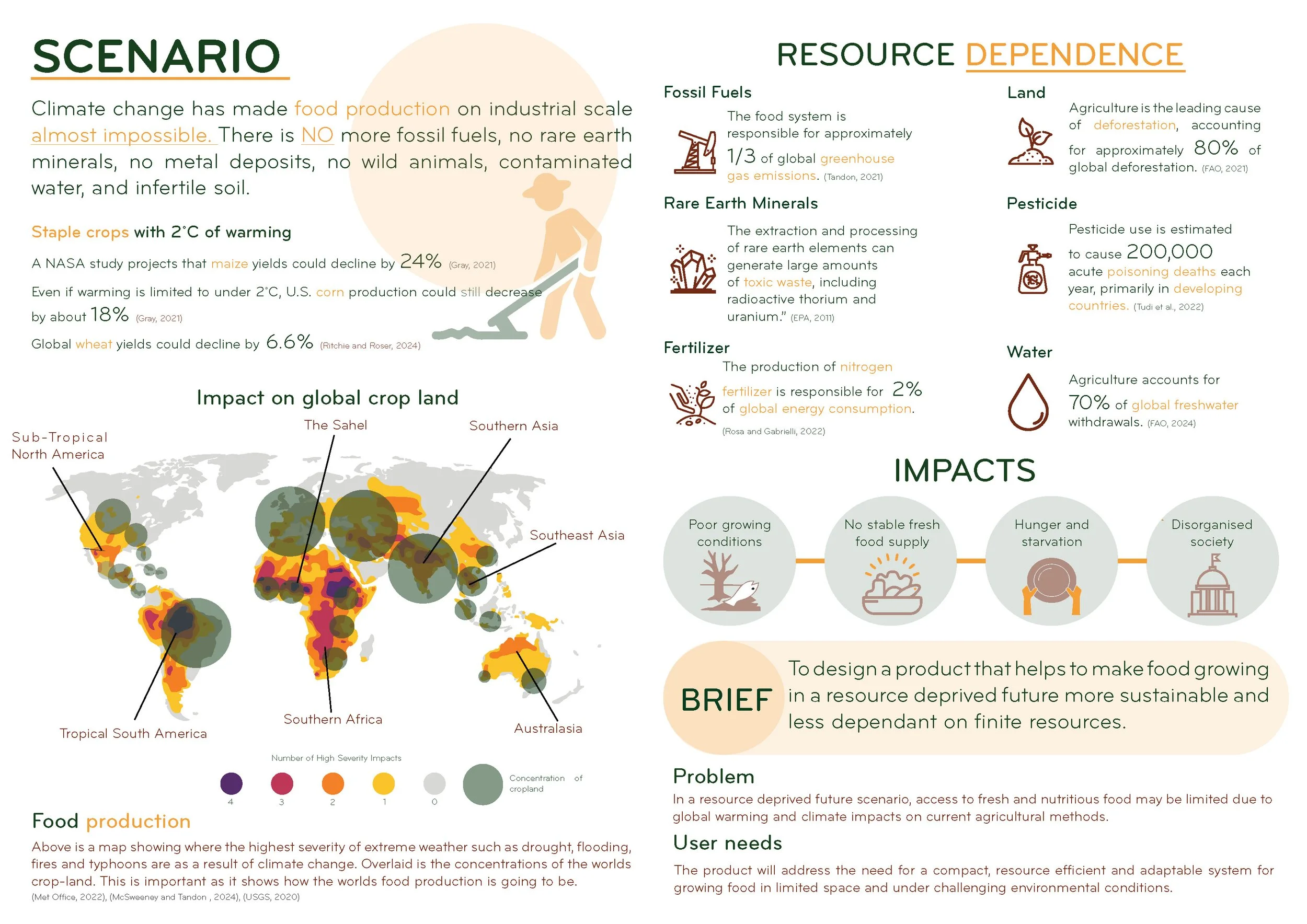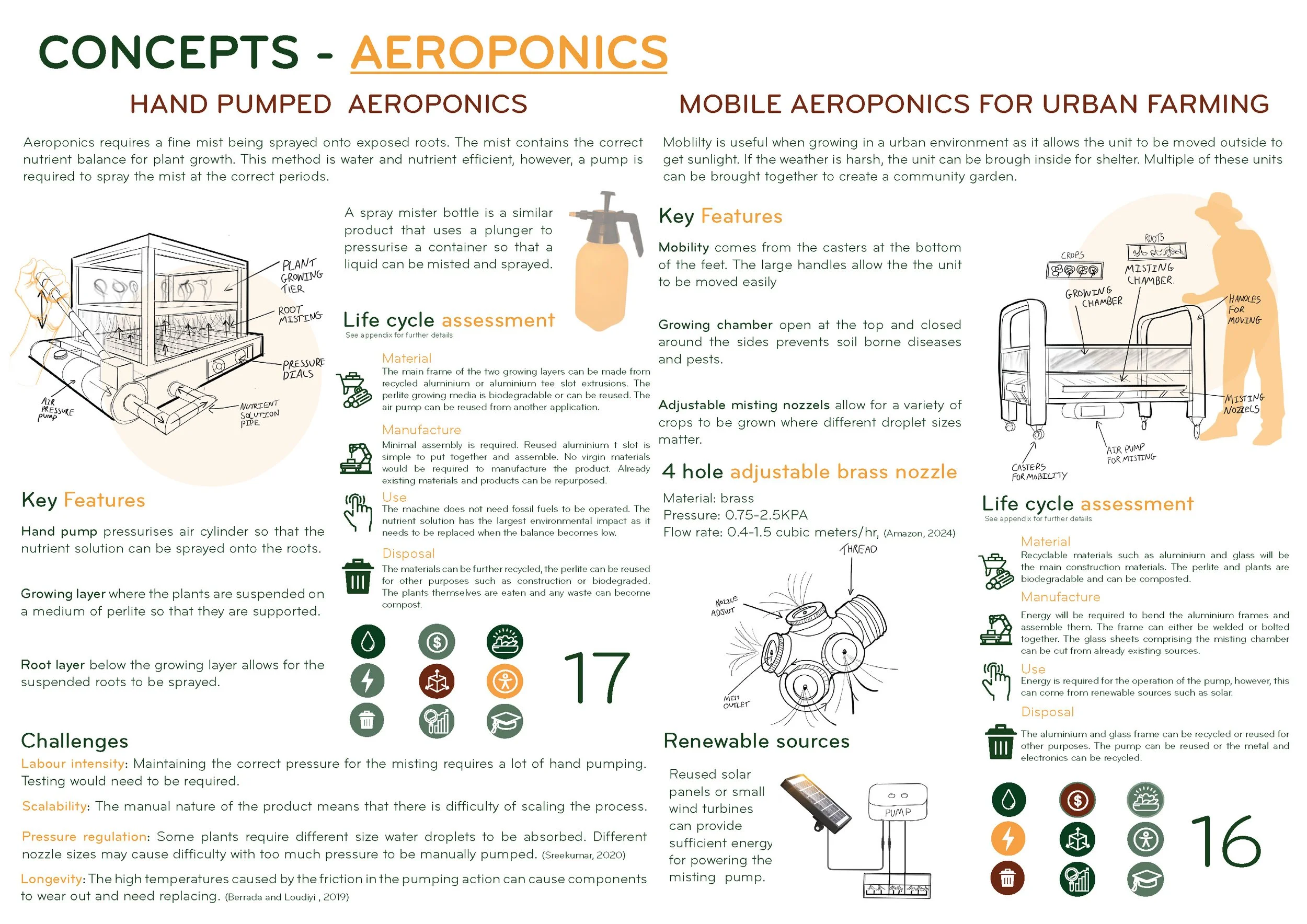Radical Design
Pt. 2
This phase reimagined food production in a future where fossil fuels, metals, fertile soils, and stable climates no longer exist. The system needed to be renewable-powered, closed-loop, modular, and low impact, providing fresh food under extreme resource scarcity.
Research & Insights
Analysis of climate and resource data showed:
Agriculture drives 70% of freshwater use and 80% of deforestation.
Yields of crops like maize could fall by up to 24% under 2°C warming.
Urban farming offers models for space-efficient, closed-loop, renewable-powered systems.
Concept Development
Six concepts explored hydroponics and aeroponics solutions, each evaluated for water efficiency, lifecycle impact, cost, and scalability:
DIY Hydroponics Starter Kit using recycled materials.
Water Testing Kit ensuring safe irrigation.
Hand-Pumped Aeroponics with zero electricity use.
Mobile Aeroponics Units for urban community gardens.
Rose Bio-Indicators for natural nutrient monitoring.
Vermicompost Tea System using worm castings for fertiliser.
Final Design
Vermicompost Tea Hydroponics System
The chosen design is a solar-powered, closed-loop hydroponics system combining vermicomposting with modular growing tanks.
Key features:
Resource Efficiency: Minimal water and energy use.
Scalability: From households to urban farms.
Food Safety: Controlled growing environment.
Community Focus: Shared use, education, and resilience.
This system delivers sustainable, nutritious food production for a resource-depleted, climate-impacted world.


